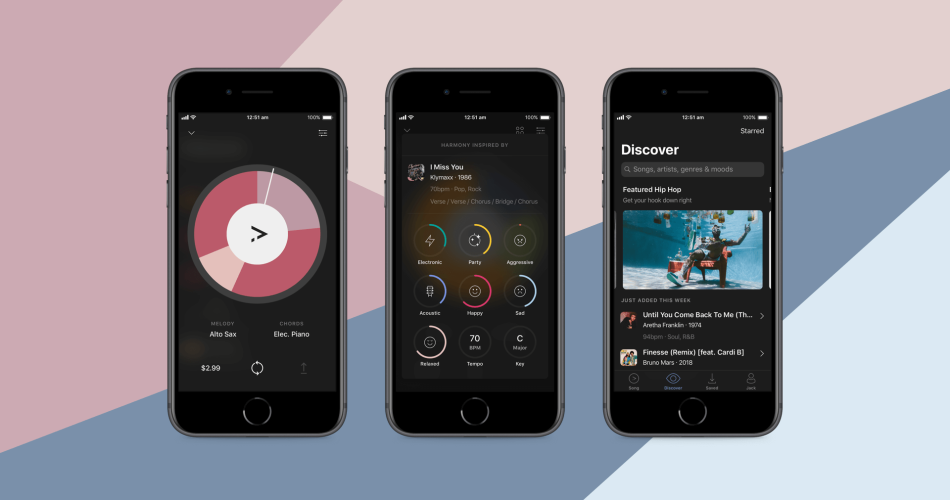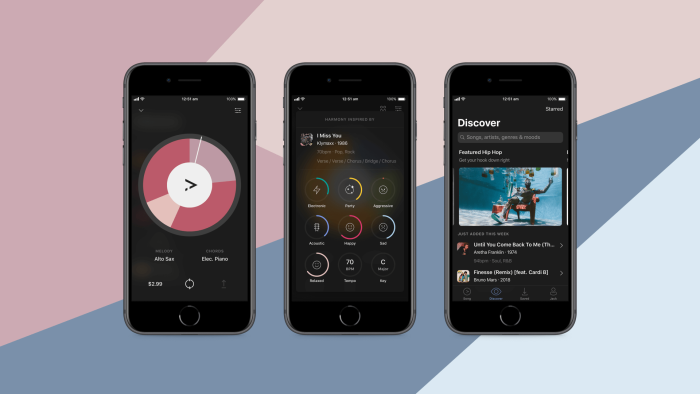Amadeus Code has announced that its songwriting assistant app is now open to all users.
Previously available in a public beta, Amadeus Code is rolling out a new way to construct songs for composers unafraid to explore the possibilities of AI-assisted songwriting.
“Our AI has the ability to find really unexpected, but yet compelling melodies and match them to the harmonies suggested by chord progressions,” explains the co-founder of the Tokyo-based tech startup Taishi Fukuyama.
Harmony Library gives users direct access to the chord progressions that power Amadeus Code’s AI songwriting assistant. These chord progressions can be searched by specific parameters, including genre, mood, tempo, and key, or by title or artist.
Amadeus Code then generates an infinite number of melodies on top of the chords found in the selected progressions, melodies a user can tweak, dissect, regenerate, and eventually export to their favorite DAW. Composers can then share their creations with other Amadeus Code users and to the world. By providing the chords and tools that help shape the melodies granularly, users can proactively collaborate with Amadeus Code to create original ideas.
“Radio, MTV, and streaming have all made an enormous impact on how creators were exposed to the music of their time. That has inherently shaped how and what they produced. Now that we’ve reached maximum capacity to consume the content we actually have access to, it’s only inevitable that we’re now getting creative and taking control over what ultimately influences our work,” Fukuyama notes. The founding team of Amadeus Code are active professional music producers with experience producing some of the most famous artists of Japan and Korea, and a technologist and serial entrepreneur in music tech.
“Amadeus Code, unlike existing music AI on the market today, is not intended to create finished works to put against a home video, for example,” Fukuyama adds. “We hope that users will complete the work started by Amadeus Code by telling their own unique stories, which will continue to be what makes music truly irreplaceable by artificial intelligence.”
This is not a copy-and-paste operation for hit making, however. This is about more than robo-songwriting. It’s about using algorithms to suggest unfamiliar melodies and expanding one’s imagination efficiently. “AI has this peculiar ability to find novel solutions–some successful, some not so much. These are suggestions which a composer can take or leave,” says Fukuyama. “Its decisions can spark a new idea for a composer, getting her into new creative territory.”
The app is a free download from the App Store, with additional features available as in-app purchases.
More information: Amadeus Code




